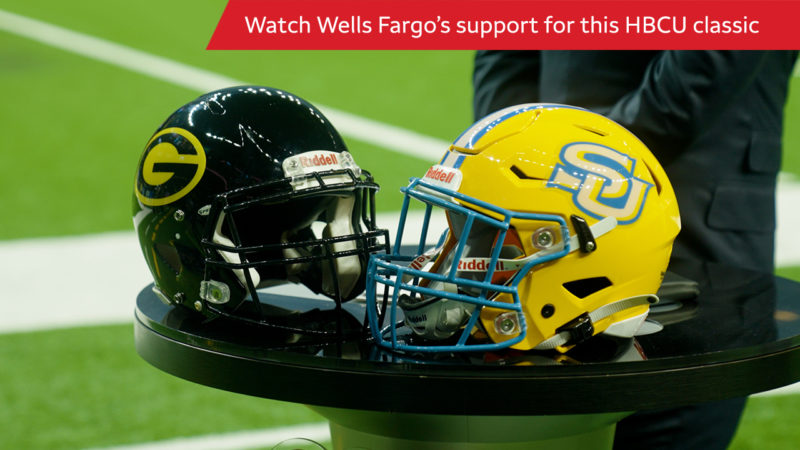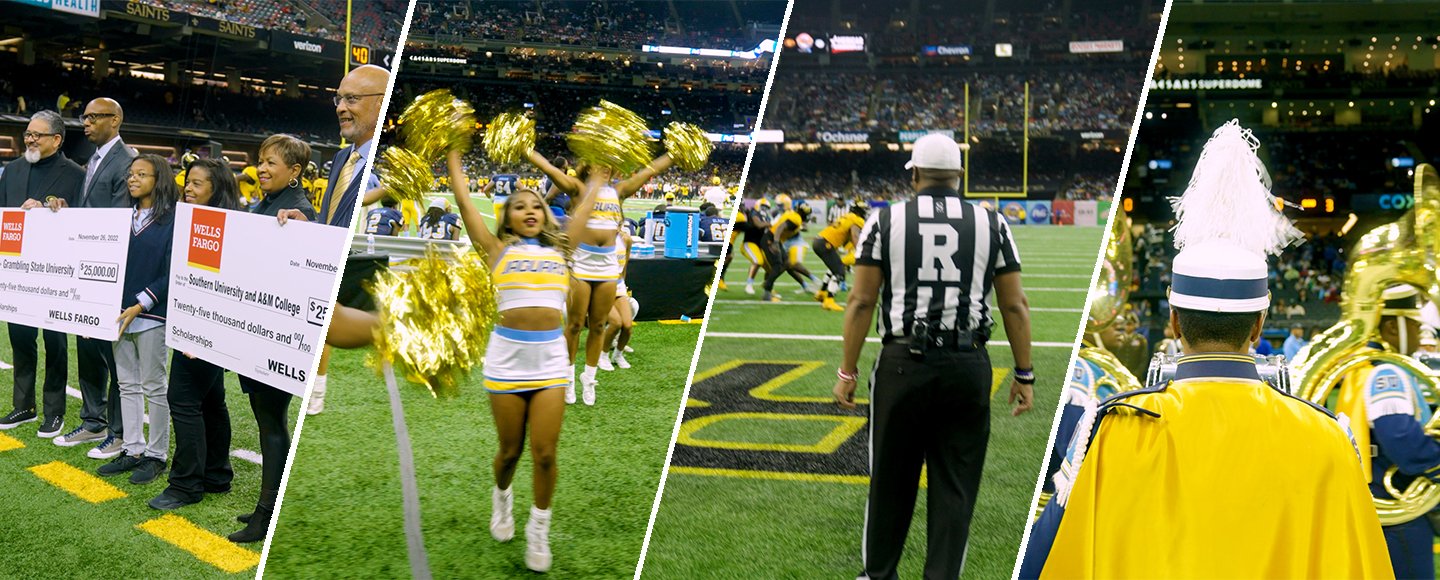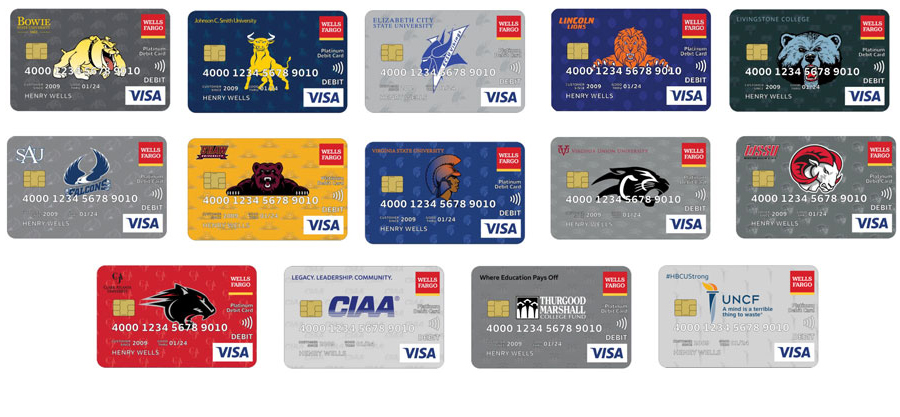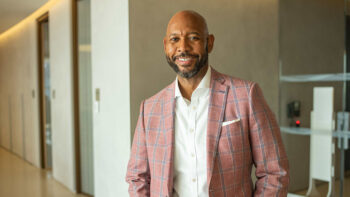More than a game: Support of HBCU classics goes way beyond football
Wells Fargo served as the official banking sponsor of four games this fall.
Football classics at historically Black colleges and universities, or HBCUs, “just hit different.” Whether it’s hearing a trombone player reach a perfect pitch, smelling the aroma of fresh meats meticulously cooked for hours upon hours, or encouraging majorettes — their glittery outfits sparkling all over the field following tumble after tumble — during a performance, football classics at HBCUs are as much family and class reunion as sporting event.
It’s true that many of the same elements — marching bands, food, good vibes, and fun — are staples at other sporting events. What separates these classics, however, is their importance to maintaining and enhancing the shared identities of HBCU graduates and fans across decades. They are typically at an off-campus venue and against one of each school’s most storied rivals. Simply put, they are cornerstones of the HBCU experience.

“These are some of the only spaces where we can be 100% us,” said Dr. Tarina Pettiway, a business execution director in Wells Fargo Commercial Banking and graduate of Florida Agricultural and Mechanical University, or FAMU. “We can wear our vibrant school colors, style our hair differently, be loud or be quiet, and no one is judging you for that.”
The authenticity present at HBCU classics is one of the reasons Wells Fargo served as the official banking sponsor of four games this fall:
- Orange Blossom Classic — FAMU vs. Jackson State University
- HBCU New York Football Classic — Morehouse College vs. Howard University
- FAMU Homecoming — University of Arkansas at Pine Bluff vs. FAMU
- Bayou Classic — Grambling State University vs. Southern University
“We couldn’t do the Bayou Classic without the investment being made by Wells Fargo and other corporate sponsors.” — Rick Gallot, president, Grambling State University
Additionally, Wells Fargo partnered with the Thurgood Marshall College Fund to provide 10 high school seniors in the Charlotte, North Carolina, area with $5,000 scholarships for use at an HBCU, during the Duke’s Mayo Classic in September (North Carolina Agricultural and Technical State University vs. North Carolina Central University).
Each of the seven teams in the four games Wells Fargo sponsored received $25,000 to be used at the school’s discretion.
“These contributions are unrestricted funds,” said Senior Lead Diversity & Inclusion Consultant Dewey Norwood. “Each strategic investment meets critical needs to keep the institutions and students running strong.”
In fact, since 2011, Wells Fargo has provided more than $110 million to support students along their higher-education journey, including $34 million to HBCUs and organizations that support them.
But money isn’t the only thing.
To a community too often overlooked by corporations and financial institutions, Wells Fargo’s presence at events like HBCU classics is both noticed and celebrated, Norwood says.
“Events like these help us forge new strategic relationships firm-wide and unearth some of the challenges customers are facing. During these national activations we often receive very candid feedback we might not receive in more formal environments,” said Norwood.
‘Simply showing up’
Wells Fargo’s sponsorship of — and activations at — these games doesn’t happen overnight.
It takes a comprehensive plan, put together by Norwood, leaders across the Black & African American Employee Resource Network as well as collaboration across multiple lines of business and functions to identify and mitigate potential risk and secure funding.
The staffing of Wells Fargo’s booth at the classics, however, is the endeavor’s heart. It’s where a host of employees volunteer part — or all — of their weekend to help highlight the company.
“To quote my kids, our activations are ‘fire,’” said Norwood. “They are exciting, and folks love to see our brand. We have all kinds of promotional items and games. And we try to make it a good time, too.”
Pettiway volunteered at FAMU’s homecoming game, while Tanya Dunbar, executive vice president, Audit Management, was at the HBCU New York Football Classic.
“Working the Wells Fargo booth was fantastic,” said Dunbar. “At first, there was some hesitancy … but after talking with people for a bit, they walked away feeling warm and embraced by our representatives. One gentleman said he was pleasantly surprised by our contributions to the HBCU community and looked forward to more in the future.”
For Pettiway, volunteering was about connecting — at a professional level — with an institution she credits for helping her achieve career success.
“It was such a great experience to be able to go on the field at homecoming and present the check to FAMU,” she said. “It’s kind of full circle, because FAMU gave me so much. Now, the students there can see that FAMU alumni are everywhere. We’re at Wells Fargo, we’re at other Fortune 500 companies, and we can achieve the same things as students at predominantly white institutions.”
Though the 2022 football season is nearing its conclusion, Norwood and his team are already in the planning stages for 2023. They’ve reviewed what worked, what didn’t, and how to move forward.
“These games are just a special time and such an amazing opportunity for Wells Fargo to connect,” he said. “There’s so much we can accomplish by simply showing up and showing HBCU alums and fans that Wells Fargo has been here for more than a decade, and that we aren’t going anywhere.”
Deposit products offered by Wells Fargo Bank, N.A. Member FDIC








